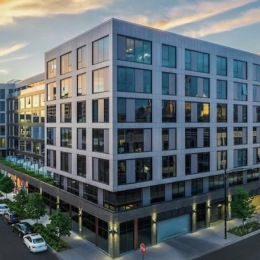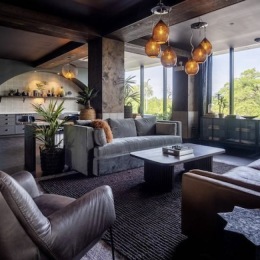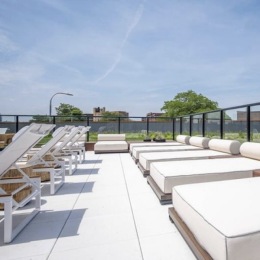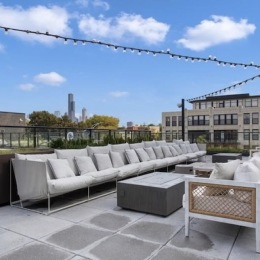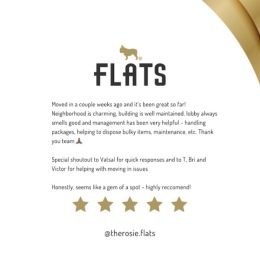Search Smarter, Not Harder: Tips for Your Chicago Apartment Hunt
Your Guide to Navigating Chicago's Rental Market
A Chicago apartment search can feel overwhelming with over 20,000 rental units spread across 77 distinct neighborhoods. The city offers everything from vintage walk-ups in Logan Square to luxury high-rises in the Loop, making it crucial to approach your hunt with a clear strategy.
Top Chicago Apartment Search Resources:
- Zillow & Apartments.com - Largest inventory with 14,000+ listings
- Domu.com - Local platform specializing in Chicago rentals
- HotPads - Real-time alerts for new listings
- Local leasing agents - Neighborhood expertise and insider access
- Direct building websites - Often feature exclusive deals
Chicago's rental market moves fast, especially during peak season from May through September. With the average rent sitting at $1,956 across all unit types, knowing where to look and how to search efficiently can save both time and money.
The city's neighborhoods each have their own character - from the trendy restaurants of West Loop to the residential streets of Lincoln Park. Understanding these differences before touring apartments will help focus your search on areas that truly fit your lifestyle.
Whether seeking a modern studio near downtown or an apartment near a university campus, having the right tools and knowledge makes all the difference in this competitive market.
Understanding the Chicago Rental Market
Starting your Chicago apartment search means getting familiar with what's actually out there. Chicago's rental landscape is as diverse as the city itself, with everything from sleek downtown towers to charming vintage buildings.
Common Apartment Types in Chicago
Chicago's rich architectural history creates a unique rental market. Each building type tells a story about the neighborhood it calls home, and understanding these differences helps narrow down what might work best for your lifestyle.
High-rise apartments dominate the skyline, especially in downtown areas. These modern towers often come with amenities like fitness centers, rooftop decks, and concierge services, and may offer spectacular views of the city skyline or Lake Michigan.
In the heart of the city are apartments in Downtown Chicago, where renovated commercial buildings mix with sleek high-rises. Living here means proximity to the business district, theaters, restaurants, and the 'L'.
Vintage walk-ups represent classic Chicago charm. These brick buildings, scattered throughout neighborhoods like Lincoln Park and Lakeview, often feature original hardwood floors, detailed woodwork, and layouts with character. As the name implies, these buildings typically do not have elevators.
Loft conversions transform old industrial spaces into stunning homes with soaring ceilings, exposed brick walls, and large windows. These open-concept spaces are common in areas like West Loop and River North.
One of Chicago's most distinctive housing styles is the courtyard building. These multi-unit buildings wrap around a central courtyard, providing residents with a green space right outside their door.
Condos for rent offer another attractive option. Individual owners rent out their units, often providing access to building amenities like pools, gyms, and doorman services.
A Look at Average Rent Prices
Knowing what to expect financially helps set realistic expectations during your Chicago apartment search. Rent varies significantly based on size, location, and amenities, but understanding the general market gives you a starting point.
Studio apartments average around $1,586 monthly, making them a popular choice for those wanting to live solo in the city. One-bedroom apartments typically rent for about $1,956 per month.
Two-bedroom apartments average $2,481 monthly, ideal for roommates or anyone needing extra space for a home office. Three-bedroom apartments average $3,014 per month, often chosen by larger households or groups of friends splitting costs.
These numbers represent citywide averages, but several factors significantly influence what you'll actually pay. Neighborhood choice makes the biggest difference, as rents vary between different areas.
Building amenities also impact pricing. In-unit laundry, fitness centers, rooftop decks, and parking spaces all add value that is reflected in the monthly rent. Transportation access matters too, as apartments near 'L' stations or major bus routes often carry a premium.
The age and condition of the building plays a role as well. Newly constructed or recently renovated properties typically cost more than older buildings. Unit size and layout within the same building can also create price differences.
How to Start Your Chicago Apartment Search
With an understanding of the market, the next step in your Chicago apartment search involves practical strategies. This section details the initial steps of the search process, from choosing a neighborhood to identifying the right resources and amenities for your lifestyle.
Choosing the Right Neighborhood
Chicago is a city of distinct neighborhoods, each offering its own personality and lifestyle. Selecting the right area is perhaps the most important decision in your apartment hunt, as it shapes your daily life.
The Loop serves as Chicago's beating heart, where business meets culture. If you thrive on the energy of a busy downtown core, with theaters, restaurants, and major attractions at your doorstep, this area delivers that urban excitement in modern high-rise living.
Just west, West Loop has transformed from an industrial district into one of the city's hottest neighborhoods. Food lovers particularly gravitate here for the acclaimed restaurant scene, while the converted loft spaces offer a blend of historic character and contemporary comfort.
River North pulses with nightlife and sophisticated dining, making it ideal for those who want luxury living with entertainment options nearby. The neighborhood's art galleries and upscale atmosphere attract those seeking a more refined urban experience.
For a more balanced lifestyle, Lincoln Park combines city and nature. The beautiful park, zoo, and lakefront access create an oasis within the city, while tree-lined streets offer both vintage walk-ups and modern buildings.
Lakeview encompasses several distinct areas, including the spirited Wrigleyville and vibrant Boystown. This diverse neighborhood offers everything from historic brownstones to contemporary apartments, with an abundance of dining and entertainment options.
Logan Square attracts creative types with its wide boulevards, stunning historic architecture, and thriving arts scene. The neighborhood's food culture has exploded in recent years, creating a dynamic community.
Wicker Park maintains its bohemian roots while embracing modern sophistication. Independent boutiques, music venues, and a vibrant nightlife scene make it perfect for those who want to be part of an artistic, trendsetting community.
Pilsen stands out for its incredible cultural richness, with vibrant murals on nearly every corner. The neighborhood's Mexican bakeries, artistic community, and convenient downtown commute make it an exciting choice. For those interested in this dynamic area, explore Apartments for Rent in Pilsen, Chicago. The comprehensive The Rosie Neighborhood Guide provides deeper insights into what makes this area special.
Other neighborhoods worth considering include the upscale Gold Coast with its historic mansions and luxury shopping, Old Town for its blend of historic charm and modern conveniences, and Hyde Park for those seeking a more serene, residential atmosphere near the University of Chicago.
Identifying Key Apartment Amenities
During your Chicago apartment search, consider which building amenities are most important for your lifestyle.
In-unit laundry is a highly sought-after convenience. Similarly, central AC is an important feature for comfort during Chicago's summers.
Outdoor space takes many forms, from private balconies to expansive rooftop decks with city views. These spaces provide fresh air without leaving home.
An on-site fitness center is a convenient amenity for many residents. Some buildings go further with amenities like pools, which are less common but highly desirable during warmer months.
For those with pets, pet-friendly policies are a key consideration. Many Chicago buildings welcome companions with specific guidelines. Learn more about Pet-Friendly Apartments in Chicago to understand your options.
Parking requires consideration in a dense city like Chicago. Options range from assigned garage spots to street permit parking, with some newer buildings even offering EV charging stations.
Modern conveniences like high-speed internet, controlled access, and concierge services add comfort and security. Hardwood floors appeal to many renters for both aesthetic and practical reasons.
Those seeking premium living experiences should explore Luxury Apartments for Rent in Chicago, where multiple high-end amenities often combine to create exceptional living environments.
Top Resources for a Chicago Apartment Search
Knowing where to look is essential for your Chicago apartment search. The right mix of resources ensures you cover the market efficiently.
Online listing platforms serve as a primary tool, with major sites aggregating thousands of listings. These platforms offer filtering options for price, bedrooms, and amenities.
Local leasing agents bring neighborhood expertise and insider access. These professionals understand specific areas and often know about properties before they hit major listing sites.
Neighborhood exploration by walking or driving through preferred areas can reveal "for rent" signs that haven't been posted online, especially for smaller landlords.
Direct building websites like The Rosie's provide the most detailed information about specific properties, including floor plans, amenities, and current availability.
Evaluating Transportation and Commute
Transportation is a crucial factor to evaluate during your Chicago apartment search. The city's extensive transit options make living without a car possible for many.
The CTA 'L' trains and buses form the backbone of Chicago transit, with some lines running 24 hours and connecting virtually every neighborhood.
Metra commuter rail extends reach beyond the CTA's coverage, useful for commuting to suburbs or more distant city areas.
Chicago's walkability varies by neighborhood but generally ranks high. The Walk Score® Rating system helps identify neighborhoods where daily errands can be accomplished on foot.
Bikeability has improved as the city invested in bike lanes and infrastructure, making cycling a viable commuting option in many neighborhoods.
For those preferring to drive, major expressways serve the city, though traffic congestion and parking challenges in dense areas require consideration.
The Application and Leasing Process
Once you've found potential apartments, this section guides you through the steps of applying for and securing your new home.
Preparing a Winning Rental Application
When you find a desirable apartment during your Chicago apartment search, you'll want to move quickly. Having a complete rental application ready can make a significant difference in a competitive market.
Most landlords will ask for an application fee to cover background checks and processing costs. These fees are typically non-refundable.
Your credit check will reveal your financial history to potential landlords. They look for tenants who pay bills on time and manage money responsibly.
Proof of income typically means recent pay stubs, employment letters, or tax returns. Most landlords want to see that your gross income is at least three times the monthly rent.
Landlord references from previous rentals carry significant weight. They can speak to your reliability as a tenant. If you're a first-time renter, character references from employers or professors can be helpful.
Understanding security deposits versus move-in fees is crucial in Chicago. A security deposit is refundable money held to cover potential damages, while a move-in fee is a one-time, non-refundable charge. Chicago's Residential Landlord and Tenant Ordinance has specific rules about how these work.
Tips for a Successful Chicago Apartment Search
Starting your Chicago apartment search with the right strategy can lead to a more efficient process. The key is being prepared and knowing what to expect.
Starting early makes a difference, especially during peak moving season from May through September. Beginning your search two to three months ahead provides more options.
Before you look at a single listing, define your priorities. What must your apartment have? Pet-friendly policies? In-unit laundry? A specific number of bedrooms? Having these non-negotiables clear helps you filter through options.
Scheduling multiple viewings in one day or weekend allows you to compare apartments while they're fresh in your memory.
During tours, ask key questions about daily living. Find out which utilities are included, what parking options exist, how maintenance requests are handled, and what the noise levels are like. It is also wise to ask about lease renewal processes and pet policies.
Understanding the Chicago RLTO (Residential Landlord and Tenant Ordinance) provides important knowledge about your rights as a tenant. This ordinance provides protections regarding security deposits, repairs, and eviction procedures.
Being prepared to act quickly is essential. Have all your application documents ready to submit as soon as you find the right place.
Special Considerations: Flexible and Short-Term Leases
Renters needing temporary housing or flexible lease terms face unique challenges during an apartment search. Fortunately, Chicago offers options designed with these needs in mind.
Proximity to universities is often a top priority for renters in those areas. Many apartments advertise their walking distance to campus or shuttle services to major educational institutions.
Furnished options can be a major benefit for those on temporary assignments or who prefer not to move furniture. Many properties near universities offer this convenience.
Lease flexibility is crucial when housing needs don't align with traditional year-long leases. Shorter-term leases, such as for three or six months, can cater to internships or temporary job assignments. Be sure to understand subletting policies if you might need to leave before your lease ends.
Corporate housing serves professionals on temporary assignments, typically offering fully furnished apartments with utilities included.
Some properties offer pricing per person or pricing per room, which can work well for shared living situations. These rentals may offer amenities like individual bedroom locks, private bathrooms, and roommate matching services.
Renting vs. Buying in Chicago
During your Chicago apartment search, you might wonder whether renting or buying makes more sense. Both options have distinct advantages depending on your circumstances and goals.
Renting offers flexibility. You can move when your lease ends without the complexities of selling property. Maintenance responsibilities fall to your landlord. Your monthly costs are predictable, and many buildings offer amenities like fitness centers and pools.
However, rent payments don't build equity. You'll also have limited ability to customize your space, and rent increases are possible at lease renewal.
Buying builds equity with each mortgage payment. Homeownership provides stability and protection against rising rental costs. You have the freedom to renovate and personalize your space, plus potential tax benefits.
The downsides include significant upfront costs for down payments and closing fees. You'll handle all maintenance responsibilities and unexpected repairs. Moving requires selling, which can be complex. Property values fluctuate, affecting your investment.
The choice depends on your financial situation, long-term goals, and preferences about responsibility and flexibility.
Frequently Asked Questions
Navigating a Chicago apartment search brings up plenty of questions, especially for first-time renters or those new to the city. Here are answers to the most common concerns.
What is the best time of year to look for an apartment in Chicago?
Timing can make a difference in your Chicago apartment search experience. Chicago's rental market follows predictable seasonal patterns that affect both availability and competition.
Peak season runs from May through September. This period offers the largest selection of available apartments since many leases end in late summer. The downside is more competition from other renters, which means faster decision-making.
The off-season stretches from October through February, when fewer people are moving. While you'll find fewer available units during these months, you'll also encounter less competition. Landlords may be more flexible during this time to fill vacant units.
The best time depends on your priorities. Peak season offers more choice with more competition, while the off-season has less competition for fewer available units.
What are my rights as a tenant in Chicago?
Chicago tenants have protections under the Chicago Residential Landlord and Tenant Ordinance (RLTO). This law provides safeguards for renters throughout the city.
Key protections include strict security deposit rules that require landlords to hold deposits in interest-bearing accounts and return them within specific timeframes. The ordinance also mandates disclosure requirements, meaning landlords must provide essential information like their contact details and a summary of tenant rights.
Maintenance and repair rights are clearly outlined, giving tenants specific procedures for requesting fixes and holding landlords accountable for keeping properties in habitable condition. The RLTO also establishes clear eviction procedures that prevent illegal lockouts and protect tenants from retaliation.
Understanding these protections is valuable during your Chicago apartment search and throughout your tenancy. The full ordinance is available online, and many tenant advocacy organizations offer summaries.
How do I check a school's rating in a neighborhood?
For those for whom school quality is a factor in their apartment search, this often plays a major role in neighborhood selection. Several reliable resources make it easy to research schools in your target areas.
GreatSchools.org provides comprehensive ratings based on test results and other performance metrics, offering a helpful starting point for comparing schools.
Chicago Public Schools (CPS) websites offer deeper insights into individual schools, including specific programs, student-teacher ratios, and enrollment information.
Many real estate and rental listing platforms now integrate school data directly into their property listings, showing nearby schools and their ratings alongside apartment details.
School boundaries can be specific, so always verify which school serves any particular address you're considering. Beyond ratings, consider factors like special programs and extracurricular activities that align with your needs.
Conclusion: Your New Chicago Home Awaits
A Chicago apartment search can seem complex, but with the right knowledge and strategy, the process becomes more manageable. The city's rental market offers something for everyone, from sleek downtown high-rises to charming vintage walk-ups in tree-lined neighborhoods.
The key to success lies in thorough preparation. Understanding the different apartment types and knowing average rent ranges keeps your expectations realistic. Choosing the right neighborhood sets the stage for your daily life, whether you crave the energy of River North or the artistic spirit of Pilsen.
Research and patience make a difference. Using multiple listing platforms, connecting with local leasing agents, and exploring neighborhoods on foot can reveal hidden gems. Evaluating transportation options early in your search is also important, as commute times can significantly impact daily life.
When you find promising properties, having your application materials ready gives you an advantage. Credit reports, income verification, and references should be organized before you start touring. The Chicago rental market moves quickly, especially during peak season.
Before signing any lease, take time to read every detail carefully. Understanding your rights under Chicago's Residential Landlord and Tenant Ordinance protects you throughout your tenancy. A thorough final walkthrough ensures everything meets your expectations before move-in day.
Chicago's neighborhoods each tell their own story, and soon you'll become part of one. The Rosie Apartments in Pilsen exemplifies modern Chicago living, where contemporary finishes meet neighborhood character in one of the city's most vibrant areas. With premium amenities like a rooftop deck and outdoor pool, plus pet-friendly policies, The Rosie creates a community where residents can feel at home.
Explore amenities at The Rosie
Your new Chicago home is out there waiting. With the right approach, you can find a neighborhood and apartment that fit your needs.






